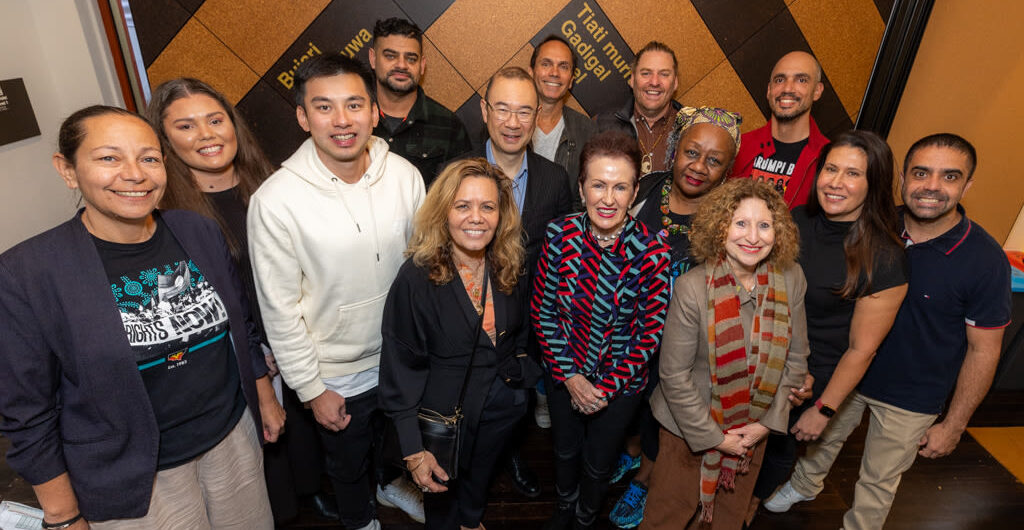
Urban impressario: a profile of Cr John Mant

City of Sydney Councillor John Mant is widely regarded as one of Australia’s most respected brains in the field of local government, if not governance in general.
The author of the NSW Local Government Act, Mr Mant’s credentials are formidable.
An urban planning consultant, a lawyer, an advisor, an administrator and now a councillor, the feathers in Mr Mant’s urbane cap include stints working for former Prime Minister Gough Whitlam, former Labor minister Tom Uren, and the reformist South Australian Premier Don Dunstan.
Last year, Mant had all but retired – but instead of packing away his considerable civic and political cognoscence, he re-entered politics, successfully securing a place as one of the City of Sydney’s 10 councillors at the September NSW local government elections.
As he gets into the swing of his first full year as a councillor, with the first general Council meeting for 2013 occurring this week, Mr Mant credits one person with his decision to keep his hand in politics: Sydney Lord Mayor Clover Moore.
Mr Mant candidly admits that his primary purpose on Council boils down to one thing: “I’m really here to serve Clover and to support Clover on Council. My main reason for being here is to support her vision for Sydney.”
A pretty uncontroversial thing to say, really. Of course he’s going to praise Clover, one might think – he’s part of the Clover Moore Independent Team.
But meeting him in his plush Town Hall office, John Mant doesn’t strike you as someone who gives praise for scant reason, or someone who pulls his punches.
In fact, in explaining why he’s so enamoured of Clover, he gives the political establishment in this state a fair left hook.
“I’ve worked in other state governments, I’ve worked in Canberra and Adelaide, and I think I’m qualified to say malevolent old partnerships and agendas and forces are deeply ingrained and very much at play in this state,” he says.
“By and large, the fundamentals of government in this state aren’t very different to what they were during the Rum Corps.”
“Corruption” is a strong word to use, and Mr Mant stops short of employing it, but it’s something he feels Ms Moore is free from.
“I have a great regard for Clover. Having been an ICAC commissioner for a while, I have certain views about the quality of public life in NSW … And I feel she’s straight as a die. And in NSW, that’s unusual.”
It comes down to the state’s history as a brutal penal colony, he believes – a history that differs from other states.
“South Australia wasn’t a convict settlement and Victoria wasn’t either, really – it was set up for a different reason, as was Tasmania.
“There was a modus operandi in NSW which flowed from the Protestant establishment that ran the colony and had untrammelled power. Democracy and other interests were imposed on that structure later but it was never fundamentally rebuilt.”
Perhaps this opinion of state politics in NSW is behind Mr Mant’s belief that local governments should assume a more prominent place in our three-tier political system.
“I wrote the Local Government Act to encourage councils to do things which perhaps traditional councils haven’t done,” he says. “To be actual local governments.”
The City of Sydney is certainly pursuing that path. With a number of programs well beyond the typical council remit of ‘roads, rates and rubbish’, the City is also pursuing projects like cycleways, stormwater harvesting, urban farms, planting an ‘urban forest’, and so on.
But the hottest potato in the sack right now is the City’s plan to switch to trigeneration by 2030.
To his credit, Mr Mant isn’t beyond expressing his own concerns about the scheme, despite it being one of Clover’s pet projects.
“I am concerned about the risk to the City, and I’ll certainly be keeping a very close eye on that,” he says candidly.
“There are potentially economic risks, and issues have been raised over whether it’s really going to save carbon, or the extent that it will. But it’s a bold experiment and it’s certainly worth pursuing.”
Asked what he would say to someone who thinks it’s unwise to spend ratepayers’ money on a “bold experiment”, he proffers: “That’s a fair view – if the risks are high. And that’s what we’ve got to determine: how high are the risks? Like anything else, we need to make a judgement as to whether the potential gains are worth the risks.”
And with his extensive experience in administration and government, it’s safe to say that in Mr Mant, the City has a valuable reservoir of knowledge to draw on, to help make that judgement.
The Lord Mayor certainly seems to think so.
Asked why she wanted Mr Mant onside when she set out to renew her team last year, she replies: “John Mant’s experience and knowledge are a huge asset to our independent team and the Council.
“Throughout his career, John has worked to protect the public interest.
“I know he’ll keep this contribution up at the City.”
Try as he might to retire, it seems there’s plenty left to do for the old Mant yet.









